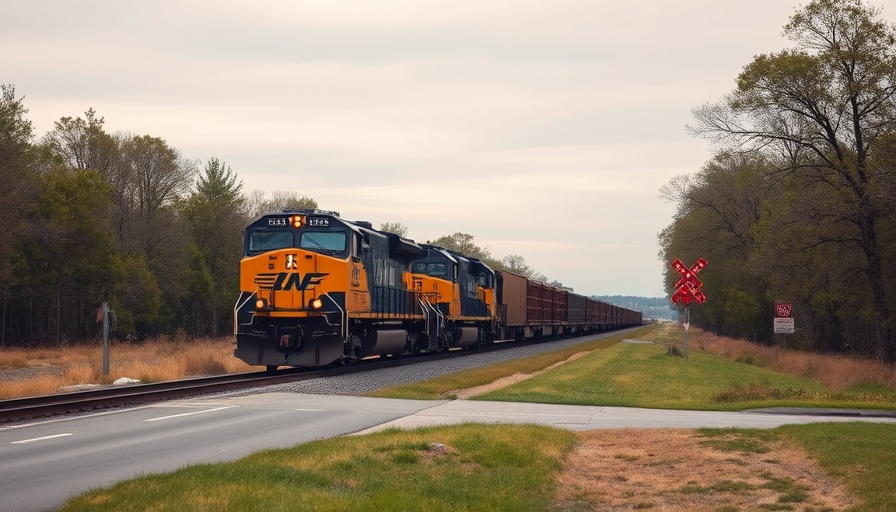
Unblocking Baytown: The Train Dilemma
In Baytown, Texas, residents are increasingly frustrated as idling trains have started to obstruct key roadways, significantly impacting their daily lives and safety. This issue, particularly pronounced in the Cedar Bayou area, has highlighted the potential risks associated with such transportation delays, especially concerning emergency responders and local traffic.
The Rising Tides of Complaints
Over the past seven years, the frequency of these occurrences has escalated, prompting community members like Courtney Bobalik to voice their concerns. "We’ve seen first responders unable to reach us during critical times because of these trains blocking access," Bobalik noted, illustrating the gravity of the situation. With trains occasionally idling for hours, this not only delays essential services but also raises serious safety alarms for those living within the vicinity.
Historical Context: Why Are Trains Idling?
The increasing problem of trains blocking passageways isn’t solely a Baytown issue. Across the United States, the rise in freight traffic has led to longer trains and more complex logistics that can cause delays at crossings. Communities near major railways have noticed a change over the years, raising equal parts concern and awareness about the consequences for neighborhoods just like Cedar Bayou.
What Are Local Leaders Saying?
Local authorities have begun to take notice of the situation. Baytown's city council has convened meetings to discuss solutions, including potential investments in overpasses or plans to coordinate with railway companies for better traffic management. Yet, results are slow to materialize, leaving residents on edge about their safety and accessibility. The lack of immediate action has left many in the community feeling helpless, urging officials to reconsider priorities when it comes to railway management.
Community Impact: A Ripple Effect
Beyond the immediate safety concerns, idling trains have wider implications for the community. They can contribute to increased traffic congestion, creating a ripple effect that affects local businesses and commuters. Residents may find alternative routes or face longer travel times, impinging on everyday life activities. Increased frustration among residents can also lead to a decline in community morale, sparking protests or demands for quicker resolutions.
Representing Diverse Perspectives
While residents express valid concerns, it's also essential to recognize the role of freight trains in supporting economic growth. Railroads transport goods crucial for industry and commerce, making them a vital aspect of the economy. Finding a balance between supporting local infrastructure and accommodating the needs of the railway services is critical.
Future Predictions: What Lies Ahead
As urban growth continues, it’s likely the issue of trains blocking streets will persist if not addressed effectively. With the population in areas like Baytown steadily increasing, local governments may face mounting pressure to adapt to these logistics challenges. Potential innovations like improved scheduling, traffic alerts for residents, and automatic train control systems could mitigate future concerns.
Taking Action: What Can Residents Do?
Proactive community engagement is vital in this scenario. Residents are encouraged to attend city council meetings, voice their concerns, and work collaboratively with local officials. Petitions aiming to draw attention to the issue can be a powerful tool. Mobilizing the community can not only bring this highlighting issue to the forefront but also facilitate change.
Conclusion: Voices of Baytown Matter
The persistent issue of idling trains in Baytown poses safety threats and community inconvenience. As residents step forward to advocate for their well-being, it’s essential that local authorities take these voices into account. The health and safety of a community hinges on their ability to work as a united front. As the tides of freight transport continue to rise, so must the efforts to create safer pathways for all.
 Add Element
Add Element  Add Row
Add Row 



Write A Comment